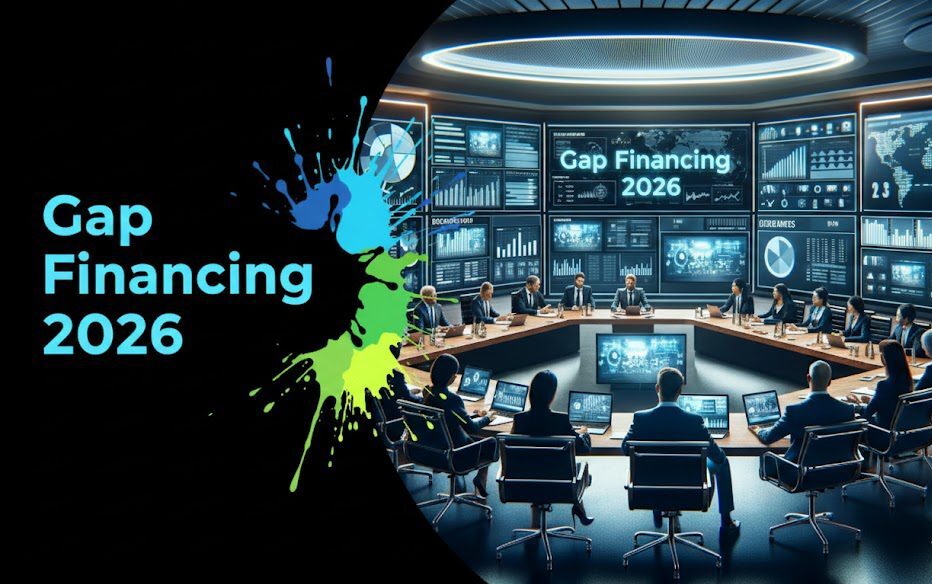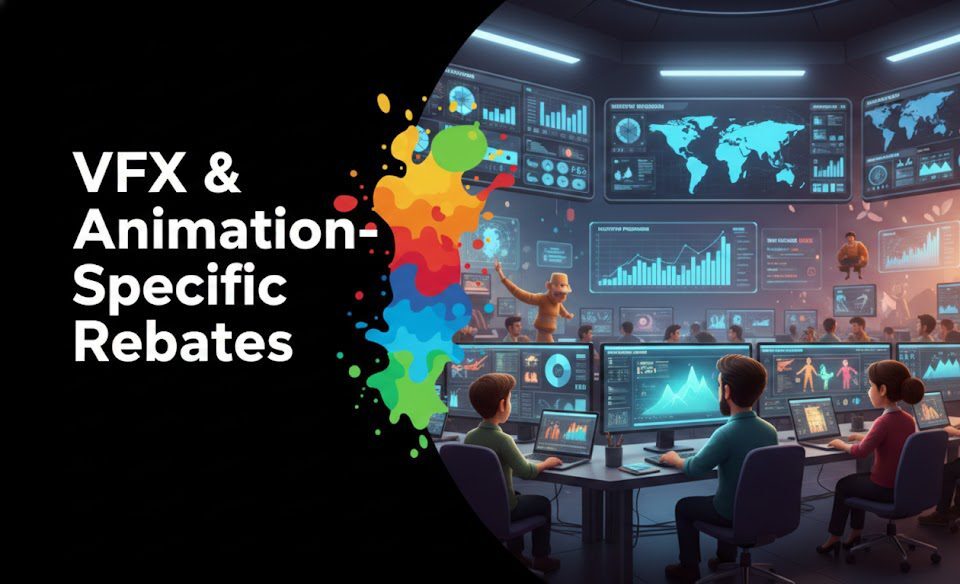Introduction
In today’s fast-paced media world, finding the best digital content companies is more than a goal—it’s essential for survival. Your project’s success depends on partnering with a team that has the right skills, technology, and vision. But with thousands of options out there, how do you cut through the noise? This guide will show you what to look for, spotlight some industry leaders, and explain how to pick the perfect partner for your creative needs.
Key Takeaways
| Key Point | Why It Matters |
|---|---|
| Define Your Needs First | A clear project scope helps you find a company with the right specialization, whether it’s post-production or localization. |
| A Strong Portfolio is Proof | Past work shows a company’s quality, style, and capability to deliver on promises. |
| Technology is a Game-Changer | Companies using the latest tech like AI and virtual production can offer more efficiency and creative possibilities. |
| Partnership is a Two-Way Street | The right partner acts as an extension of your team, ensuring smooth communication and collaboration. |
Need a specific content service?

What Makes the Best Digital Content Companies Stand Out?

The top companies aren’t just vendors; they are creative partners. They blend artistic vision with technical excellence and business smarts to bring ideas to life. Knowing these qualities helps you separate the good from the truly great.
What are the core qualities of a top content creator?
A top-tier digital content company shines through a combination of creativity, reliability, and technical prowess. They have a deep understanding of storytelling and know how to connect with an audience, regardless of the medium. Their team is a mix of artists and technicians who are masters of their craft.
- Creative Vision: The ability to develop unique ideas and compelling narratives.
- Technical Expertise: Mastery of the latest production tools, software, and workflows.
- Proven Track Record: A portfolio filled with successful, high-quality projects.
- Adaptability: The flexibility to handle different project sizes, genres, and client needs.
- Strong Communication: A commitment to clear, consistent, and collaborative communication.
Why is a strong portfolio so important?
A portfolio is the most reliable indicator of a company’s capabilities. It’s direct evidence of their work quality, creative style, and experience in specific areas like VFX, animation, or live-action production. Reviewing past projects helps you confirm that their skills align with your vision.
| Evaluation Criteria | What to Look For |
|---|---|
| Portfolio Quality | High production values, engaging storytelling, and technical polish. |
| Client Testimonials | Positive feedback on collaboration, deadlines, and final results. |
| Industry Awards | Recognition from respected industry bodies. |
Exploring the Core Services of Digital Content Agencies
Digital content is a broad field, covering everything from blockbuster films to short social media clips. The best companies often offer a wide range of services to manage a project from the initial idea to the final delivery, ensuring a consistent and high-quality result.
What are the primary types of digital content creation?
Content creation services can be grouped into three main stages: pre-production (planning), production (shooting/creating), and post-production (editing and finishing). Many top firms also specialize in global content services like localization and distribution to reach worldwide audiences.
- Content Strategy: Developing a plan to meet creative and business goals.
- Live-Action & Animation Production: Creating video content from scratch.
- Post-Production: Includes editing, color grading, sound design, and visual effects (VFX).
- Localization & Dubbing: Adapting content for different languages and cultures.
- Digital Asset Management: Storing and managing media files securely and efficiently.
How has technology impacted content services?
New technologies like AI and virtual production are revolutionizing the industry. AI tools can speed up tasks like subtitling and editing, while virtual production allows filmmakers to create stunning, complex scenes in a studio environment, saving time and money.
| Service Category | Common Deliverables |
|---|---|
| Production Services | Feature films, TV series, commercials, corporate videos. |
| Post-Production | Final edited master, color-corrected footage, sound mixes, VFX shots. |
| Localization | Subtitled/dubbed versions, translated graphics, cultural edits. |
Spotlight: A Look at Leading Digital Content Companies
The media and entertainment landscape is powered by incredible companies of all sizes. From global giants to specialized boutique studios, the right partner is out there. Here are a few examples of the high-caliber companies you can discover and connect with on a platform like Vitrina.
Who are some top performers in the digital content space?
The following companies represent a fraction of the talent in the industry, each known for excellence in their respective fields. They showcase the diversity of skills available, from massive global operations to specialized service providers.
- Deluxe: A global titan in content creation and delivery solutions.
- NEP Group: A leading provider of outsourced production services for live sports and entertainment.
- Harbor Picture Company: A top-tier studio known for its high-end post-production services for film and television.
- Hiventy: A key player in technical post-production and content localization across Europe.
- UFO Moviez: A pioneer in digital cinema distribution and in-cinema advertising.
- Silver Trak Digital: An expert in digital asset management, QC, and media delivery services.
| Company Name | Core Specialization |
|---|---|
| Deluxe | End-to-end Content Services |
| NEP Group | Live & Broadcast Production |
| Hiventy | Localization & Post-Production |
Ready to scale your content production?

How to Choose the Right Content Partner for Your Needs
Making the final choice requires a thoughtful approach. You need to balance creative fit, budget constraints, and logistical considerations to ensure a successful partnership and a fantastic final product.
What steps should you take to vet a potential partner?
Start by clearly defining your project’s scope, budget, and timeline. This will be your guide. Then, create a shortlist of potential companies. Request proposals, check references, and have detailed conversations with your top choices to gauge their understanding of your vision.
- 1. Define Your Goals: What do you want to achieve with this content?
- 2. Research & Shortlist: Use platforms like Vitrina to find companies with relevant experience.
- 3. Review Portfolios & Case Studies: Look for work similar to your project.
- 4. Check References: Talk to their past clients about their experience.
- 5. Assess Cultural Fit: Choose a team you can collaborate with effectively.
How can a platform like Vitrina help?
Finding vendors, vetting them, and managing the workflow is a massive task. That’s where Vitrina steps in. Vitrina is a global marketplace for the Media & Entertainment industry, designed to streamline this entire process. Our platform provides you with detailed, verified data on over 12,000 vendors, including service providers like Harbor Picture Company and Silver Trak Digital. Whether you’re sourcing solutions for post-production, localization, or VFX, our powerful search filters help you find the perfect match in minutes. Plus, with tools like the Vitrina Project Tracker, you can manage your projects and collaborations all in one place.
| Vetting Step | Key Question to Ask |
|---|---|
| Initial Call | Can you walk me through a similar project you’ve completed? |
| Proposal Review | Is the timeline realistic and is the budget fully broken down? |
| Reference Check | How did the company handle unexpected challenges or changes? |
Conclusion
Choosing from the best digital content companies is a critical decision that will shape your project. By focusing on their portfolio, technical skills, and collaborative spirit, you can build a partnership that leads to incredible results. Using a dedicated M&E marketplace simplifies this search, connecting you directly with the world’s top creative talent.
Ready to stop searching and start creating? Get Your Vitrina Membership today and connect with your next great creative partner.
Frequently Asked Questions
Vitrina acts as a smart directory and marketplace. Instead of manually searching, you can use specific filters for services, location, and specialties to find verified companies that match your exact needs, complete with work history and contact details.
While there’s overlap, digital content companies focus on the creation of the content itself (e.g., filming, editing, animating). Marketing agencies focus on the strategy and distribution of that content to achieve marketing goals. Many companies now offer both services.
Absolutely. Vitrina’s database includes a vast range of vendors, from large multinational corporations to highly specialized boutique studios and freelancers. This allows you to find the exact expertise you need for any project size.
Costs vary widely based on project scope, duration, and the company’s reputation. A key benefit of Vitrina is being able to easily find and request quotes from multiple qualified vendors to compare pricing and find a partner that fits your budget.





































